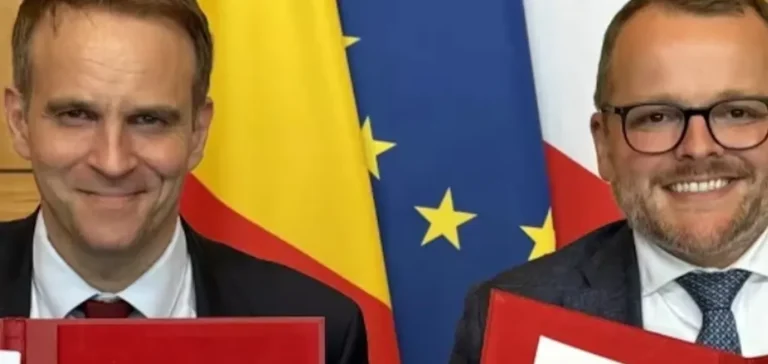France and Belgium have formalised a new phase of energy partnership focused on nuclear power during a meeting in Paris. The declaration of intent, signed by Mathieu Bihet, Belgium’s Federal Minister of Energy, and Marc Ferracci, French Minister for Industry and Energy, sets out an expanded cooperation between the two countries on the extension of existing reactors, the development of new projects, including Small Modular Reactors (SMR), as well as research and innovation.
Shared strategic priorities
The governments plan to establish thematic working groups tasked with implementing joint projects on the long-term operation of the nuclear fleet, training and skills enhancement, as well as securing strategic supply chains. The stated aim is to place nuclear energy at the core of Europe’s industrial and scientific ambition, as shown by Belgium’s recent decision to officially join the European Nuclear Alliance.
Belgium’s reversal of the 2003 nuclear phase-out law was confirmed by a federal parliament vote in May, allowing continued operation of its remaining units. Before this policy change, Tihange 1 and Doel 2 reactors were set to close in October and December this year, while Doel 4 and Tihange 3 were scheduled to cease operations in November 2025. An agreement reached last December now provides for Doel 4 and Tihange 3 to operate for an additional ten years.
Towards greater energy sovereignty
France, with the largest civil nuclear fleet in the European Union, continues to invest in the sector, relying on a revival of the nuclear industry to address competitiveness and security of supply challenges. This rapprochement with Belgium comes as the European Nuclear Alliance, currently comprising thirteen members, advocates for the expansion of nuclear energy use and the recognition of the technology as a pillar of energy sovereignty.
The joint declaration highlights a convergence of views on the need for a European energy strategy based on technological neutrality and independence from external markets. Bilateral exchanges must now lead to concrete actions in both operation and innovation to ensure the sustainability of the two countries’ nuclear industries.
Official statements stress that the revival of nuclear power in Belgium, supported by this new partnership, must meet the objectives of security of supply, energy sovereignty, and the maintenance of a robust industrial capacity in the sector. Mathieu Bihet stated that “Belgium is committed to working with its European partners on long-term strategic issues”.






















